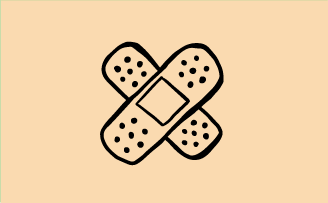Antiretroviral
Treatment for HIV
Remember that an HIV diagnosis doesn’t have to stop you living a full and healthy life. With the right treatment and care, you can expect to live just as long as someone who doesn’t have HIV.
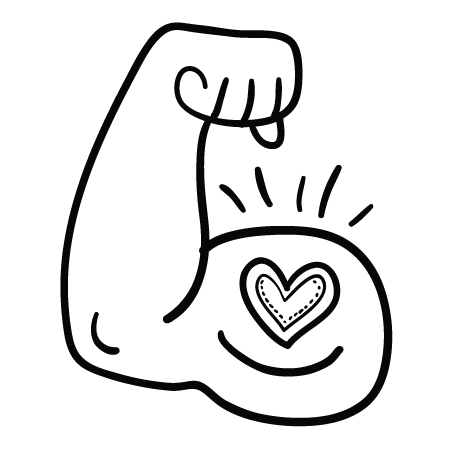
Fast Facts
- With the right treatment and care, you can live a long and healthy life with HIV.
- If you have been diagnosed with HIV it is important to start taking treatment as soon as possible.
- Remember, your healthcare worker can give you guidance on treatment and put you in touch with an HIV support group or a counselor.
Can HIV be Treated?
Yes. HIV is treated with two groups of medicines.
One group of medicines is used to slow or even reduce the spread of the virus within the body. These are called antiretroviral.
The other group of medicines is used to fight illnesses that are caused by a weakened immune system. These are called medicines to cure or prevent opportunistic infections.
People who begin HIV treatment on time will most likely never need to use the second group of medicines because their immune system is and will remain strong enough to fight off possible opportunistic infections before they take hold
Can HIV be Cured?
The medicines mentioned previously cannot cure either HIV or AIDS, but they do help people live a healthier and therefore a higher-quality life for a longer period of time than if they did not take any medicine.
> What happens if people with HIV do not get treated?
If people who need treatment do not receive it, their health will deteriorate and eventually they will die. However people who are on treatment and under medical supervision, will be able to live long and healthy lives.
> Misconceptions about HIV treatment.
There are some people who claim HIV can be cured with alternative treatments. This is a false claim: apart from antiretroviral treatments, no other treatments have been proven to work against HIV.
The following unproven (one could call them ‘fake’) treatments or activities are common in Malaysia:
- So-called “alternative remedies”, (herbal or ‘natural’ treatments) that some claim are able to cure HIV or AIDS, but also traditional Chinese medicines, Ayurvedic medicines—these may be effective to alleviate certain symptoms of disease, but can definitely not rid the body of the virus.
- Religious rituals or practices by spiritual healers such as shamans or ‘bomoh’ who claim they can cleanse the body of HIV. It goes without saying that viruses are not religious and cannot be influenced by anybody, no matter how elaborate the ritual or how sincere the request, to leave a body. Religion helps people come to terms with their life and with their infection—but it should not interfere with the medical treatment and care.
- There are also misconceptions that some herbal/vitamin/mineral/hormone supplements can boost CD4 or that Meth is an immune system booster or can make treatment more effective by “flushing” HIV out from hiding in the reservoirs. All of this, is of course untrue.
> ART and ARV
ART stands for antiretroviral treatment (or therapy). ART consists of the combination of antiretroviral (ARV) drugs to maximally suppress the HIV virus and stop the progression of HIV. Many people living with HIV are taking treatment and staying healthy as a result. Current treatment for HIV is not a cure for HIV, but it can keep HIV under control very effectively.
> HAART
To prevent strains of HIV from becoming resistant to a type of antiretroviral drug, healthcare providers recommend that people infected with HIV take a combination of antiretroviral drugs in an approach called “highly active antiretroviral therapy” (HAART).
How does Antiretroviral Treatment Work?
ART works by keeping the level of the HIV virus in your body low (your viral load). This lets your immune system recover and stay strong. Keeping your viral load low also helps to prevent the transmission of HIV.
With good healthcare and treatment, many people with HIV are living just as long as people who don’t have HIV. You can continue to have relationships, to work or study, to make plans, to have a family – everything you would have done before your HIV diagnosis.
Effective treatment also means that some people living with HIV are achieving undetectable viral loads. This means that the virus exists in such small quantities in their blood that it does not affect their health and there is zero risk of transmitting the virus on to others. But remember that if you stop taking your medication, your viral load will increase again.
When Should I Start Antiretroviral Treatment?
Without treatment, people living with HIV can become ill because of the damage HIV does to the immune system. The immune system is your body’s way of protecting itself from illnesses caused by germs, bacteria or infections.
It is now recommended that people living with HIV begin their antiretroviral treatment regiments straight away. This is being implemented in an increasing number of countries. In some places, the decision about when to start treatment is still dependent upon a CD4 count test, which detects how many CD4 cells are present in a small amount of blood.
The CD4 cells (also called T-helper cells) are an important part of the immune system because they fight germs and infections. HIV attacks CD4 cells and reduces the number of them in your body. Without treatment, HIV slowly weakens the immune system, making it harder for your body to fight off any kinds of illnesses or infections.
You must have proffesional consultations with your healthcare consultant on the best time to start your treatment
Other reasons to start treatment
Antiretroviral treatment reduces your viral load, which makes it less likely for any HIV transmission. For this reason, it is important that all women with HIV who are pregnant or breastfeeding take treatment to prevent transmitting HIV to their baby. Anyone living with HIV who is in a relationship with someone who does not have HIV (a mixed-status relationship) should also consider treatment to prevent HIV transmission.
Being ready to start treatment
Perhaps the most important factor of all is whether you feel ready to start HIV treatment. The current HIV medications need to be taken every day for the rest of your life. You might feel good about starting HIV treatment, because it is something you can do to stay healthy and strong. But it is also normal to feel worried about it, or to have questions. Give yourself time to prepare for taking HIV treatment every day.
In addition to talking to your doctor, you may find it helpful to talk to someone who has experience of taking HIV treatment. Many clinics have peer mentors, who can offer support and information, or can put you in touch with community organisations and peer support groups.
How can People Living with HIV Stay Healthy?
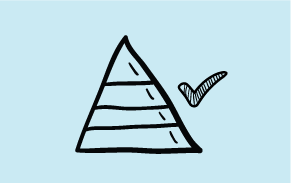
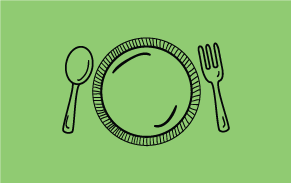
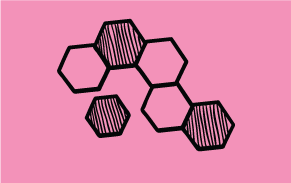
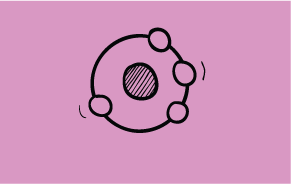

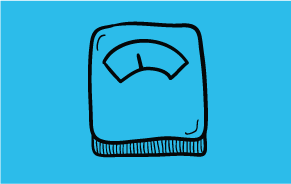
What is The Best HIV Treatment to Start With?
The drugs used to treat HIV are called antiretroviral drugs (ARVs). There are several different types and they work in different ways. HIV treatment is made up of three or more antiretroviral drugs taken together. Sometimes, these drugs are combined into one pill.
There are lots of antiretroviral drugs, and they can be combined in different ways. The World Health Organization (WHO) has recommended a combination of antiretroviral drugs for people starting HIV treatment:
- TDF (tenofovir)
- 3TC (lamivudine) or FTC (emtricitabine)
- EFV (efavirenz).
WHO has also recommended alternative combinations. Your doctor will be able to tell you which drugs are best for you.
What Else Should I consider?
If you have a choice of drugs, talk to your doctor about which combination might be the best one for you. If you are taking treatment for another health condition, or contraception (family planning), it’s important that your doctor knows about this, as one drug may affect another. Taking certain recreational drugs can cause your treatment to stop working properly, but it is important that you always take your treatment.
Most antiretroviral drugs are taken once a day, with or without food. However, some drugs are taken twice a day, or should be taken with food. If this might be something you find difficult, talk to your doctor about your options.
In some countries, the cost of drugs and your insurance cover may be something you have to consider.
Does Antiretroviral Treatment Have Side-Effects?
As with all medication, starting to take ARVs can cause some side-effects, particularly in the first few days of treatment. This is another topic you could discuss with your doctor, as it might also affect your choice of drugs. Your treatment will be monitored and you may be recommended to switch drugs if they aren’t working for you.
Types of Antiretroval Treatment
Entry Inhibitors
Entry inhibitors interfere with the virus’s ability to bind to receptors on the outer surface of the cell it tries to enter. When binding with the cell receptor fails, HIV cannot infect the cell.
Fusion Inhibitors
Fusion inhibitors interfere with the virus’ ability to fuse with a cellular membrane, also preventing HIV from entering a cell.
Reverse transcriptase inhibitors
Reverse transcriptase inhibitors prevent the HIV enzyme reverse transcriptase (RT) from converting single-stranded HIV RNA into double-stranded HIV DNA. The process is called “reverse transcription”.
Integrase inhibitors
Integrase inhibitors block the HIV enzyme integrase, which the virus uses to integrate its genetic material into the DNA of the cell it has infected.
Protease inhibitors interfere
Protease inhibitors interfere with the HIV enzyme called protease, which normally cuts long chains of HIV proteins into smaller individual proteins. When protease does not work properly, new virus particles cannot be assembled.
Multi-class combination products
Multi-class combination products combine HIV drugs from two or more classes, or types, into a single product.
More About Treatment
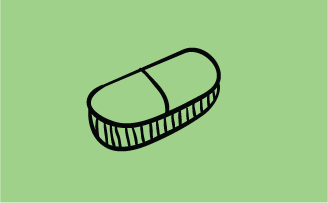
What Does Undetectable Mean?
An undetectable viral load (UVL), or viral suppression, refers to an important goal of antiretroviral treatment, which is achieved when antiretroviral therapy reduces a person’s HIV viral load (HIV RNA) to a level undetectable when using most modern viral load tests. Viral suppression does not mean a person is cured as the virus still remains in the body. If ART is discontinued, the person’s viral load will likely return to a detectable level. An undetectable viral load is important as it is a sign that the treatment is working well, and that the person taking treatment has become unable to transmit HIV to others.
Monitoring & Switching Treatment
Once you start taking HIV medication, it is important to take it every day. For many people, the treatment will continue working as long as they’re adherent to their medication.
If your viral load is not being kept under control by the treatment, your doctor will need to find out why. If you’re having problems taking it or if you’re taking another medication which is preventing your HIV medication from working, then you may be able to resolve these problems and stay on the same treatment.
However, if your treatment has stopped working, perhaps because of resistance to the medication, then your doctor will advise you to change the course of the treatment. There are a few different types of HIV medications, and therefore even if you develop resistance to one type of medication, you should be able to switch to another which will be effective. This is known as second-line or third-line treatment.
